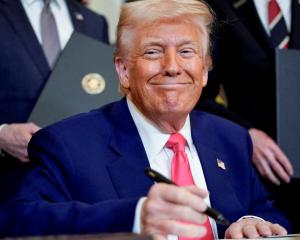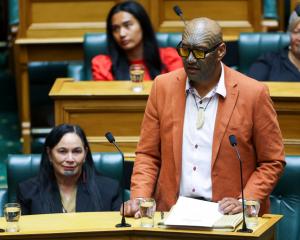
Labour was a critic of New Zealand's involvement in the TPP, saying the details should be released. Some Labour MPs marched in protests against New Zealand signing up to the deal.
Now in Government, Mr Parker has worked alongside 10 other trade ministers in Da Nang, Vietnam, to suspend some of the most controversial parts of the original agreement. At the same time, there will be no change to the goods market access outcomes in the original TPP.
The overall outcome satisfies the five conditions the Labour-led Government laid out for a revised TPP.
Mr Parker is due congratulations if indeed the new agreement, now known as the Comprehensive and Progressive Agreement for the Trans-Pacific Partnership, or CPTPP, is signed up to in full sometime next year.
If Labour is on board with the new agreement, it will show a remarkable maturity for a new government, one which was so harshly critical of National in its drive for trade.
There is no doubt Mr Parker recognises the benefits of trade.
A sticking point is the Investor-State Dispute Settlement process, which allows corporates to sue individual countries.
Under ISDS, foreign investors could claim new laws and regulations introduced by the New Zealand Government have breached their special rights under the TPP and undermined the value of their investments. Investment is defined extremely widely in the TPP, to include almost anything a foreign company has spent money on in New Zealand - including shares, businesses, contracts, land, intellectual property rights and even government bonds.
New Zealand has retained its reciprocal agreement with Australia, which is the source of 80% of New Zealand's overseas investment from the new grouping. ISDS clauses will not apply between the two countries. New Zealand continues to seek similar agreements with the other countries. Also, the scope to make ISDS claims has been narrowed.
This will go some of the way, but definitely not all of the way, to appeasing TPP opponents such as University of Auckland law professor Jane Kelsey, an outspoken critic of the deal being negotiated by National. She has now turned her sights on Labour and Deputy Prime Minister and New Zealand First leader Winston Peters.
It is a moot point whether Prof Kelsey, and her like-minded opponents, will ever agree on the benefits of trade for New Zealand. Nevertheless, the vocal minority to New Zealand free-trade agreements will continue their disruptive campaign, no matter who leads the Government.
At first sight, Mr Parker has done well. The Pharmac model continues to be protected. Further improvements now achieved include suspension of patent extensions which may have increased the cost of medicine to the Government.
Importantly, the Government has the ability to control the sale of New Zealand homes through separate legislation, also meeting a Labour election promise.
Exporters throughout New Zealand will welcome the progress made on trade. Every extra $1billon of exports means 8500 new jobs, an important equation for any government.
Labour and NZ First have not yet faced their harshest critics of trade deals, the trade unions. The unions will be concerned about the loss of New Zealand jobs through the arrival of cheaper imports, something already happening. The unions must find a way through their concerns without damaging the deal.
To counter criticism, Ms Ardern needs to ensure transparency of the negotiations.
The Green Party says it will oppose any vote in Parliament to ratify the trade agreement but National has assured Labour it will vote in support. This means the deal will become a reality and a major win for Ms Ardern and top trade ministers.












